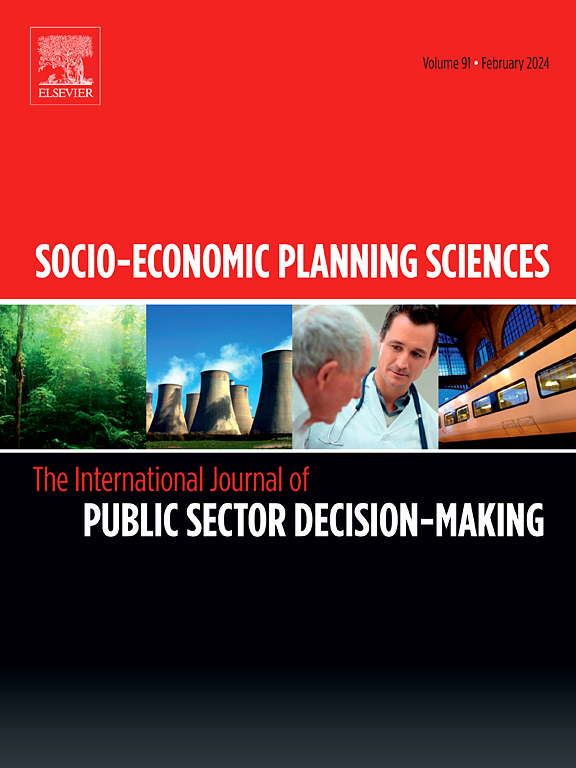横向生态补偿如何促进生态环境保护与经济高质量增长的耦合发展?中国循环经济实践的证据
IF 5.4
2区 经济学
Q1 ECONOMICS
引用次数: 0
摘要
横向生态补偿制度是发展循环经济的具体实践安排,是促进保护与发展共赢的重要动力。本文以黄河流域(河南—山东段)横向生态保护补偿试点项目为准自然实验,采用差中差法实证检验了横向生态补偿对生态环境保护和经济高质量发展的直接影响和中介作用。结果表明,横向生态补偿试点政策的实施能够促进生态环境保护与经济高质量增长的耦合发展,对生态环境保护的影响(0.0326)大于对经济高质量增长的影响(0.0171)。数字基础设施建设、产业结构调整和提高土地资源利用三个变量具有显著的正向中介作用,而提高水资源利用的中介作用尚未显现。试点政策的影响主要体现在河南上游河段(0.0291),对山东下游河段(- 0.0060)的负面影响不显著。这一结论为从横向生态补偿视角探索绿色高质量发展路径提供了理论支持,为各国政府发展循环经济提供了重要的实践途径。本文章由计算机程序翻译,如有差异,请以英文原文为准。
How does horizontal ecological compensation promote the coupled development of ecological environment protection and high-quality economy growth? Evidence from China's circular economy practices
The horizontal ecological compensation system is a concrete practical arrangement for the development of a circular economy and an important driving force for promoting the win-win situation of protection and development. We used the Yellow River Basin (Henan–Shandong section) horizontal ecological protection compensation pilot project as a quasi-natural experiment and employed the difference-in-differences method to empirically test the direct impact and mediating effects of horizontal ecological compensation on ecological and environmental protection and high-quality economic development. Results reveal that the implementation of the pilot policy for horizontal ecological compensation can promote the coupled development of ecological environment protection and high-quality economy growth, with a greater impact on ecological environment protection (0.0326) than on high-quality economic growth (0.0171). The three variables of building digital infrastructure, adjusting industrial structure, and improving land resource utilization have a significant positive mediating effect, while the mediating effect of improving water resource utilization has not yet become apparent. The effect of the pilot policy is mainly reflected in the upstream Henan section (0.0291) and has an insignificant negative impact on the downstream Shandong section (−0.0060). The conclusion provides theoretical support for exploring the path to green and high-quality development from the perspective of horizontal ecological compensation and offers an important practical approach for governments worldwide to develop a circular economy.
求助全文
通过发布文献求助,成功后即可免费获取论文全文。
去求助
来源期刊

Socio-economic Planning Sciences
OPERATIONS RESEARCH & MANAGEMENT SCIENCE-
CiteScore
9.40
自引率
13.10%
发文量
294
审稿时长
58 days
期刊介绍:
Studies directed toward the more effective utilization of existing resources, e.g. mathematical programming models of health care delivery systems with relevance to more effective program design; systems analysis of fire outbreaks and its relevance to the location of fire stations; statistical analysis of the efficiency of a developing country economy or industry.
Studies relating to the interaction of various segments of society and technology, e.g. the effects of government health policies on the utilization and design of hospital facilities; the relationship between housing density and the demands on public transportation or other service facilities: patterns and implications of urban development and air or water pollution.
Studies devoted to the anticipations of and response to future needs for social, health and other human services, e.g. the relationship between industrial growth and the development of educational resources in affected areas; investigation of future demands for material and child health resources in a developing country; design of effective recycling in an urban setting.
 求助内容:
求助内容: 应助结果提醒方式:
应助结果提醒方式:


